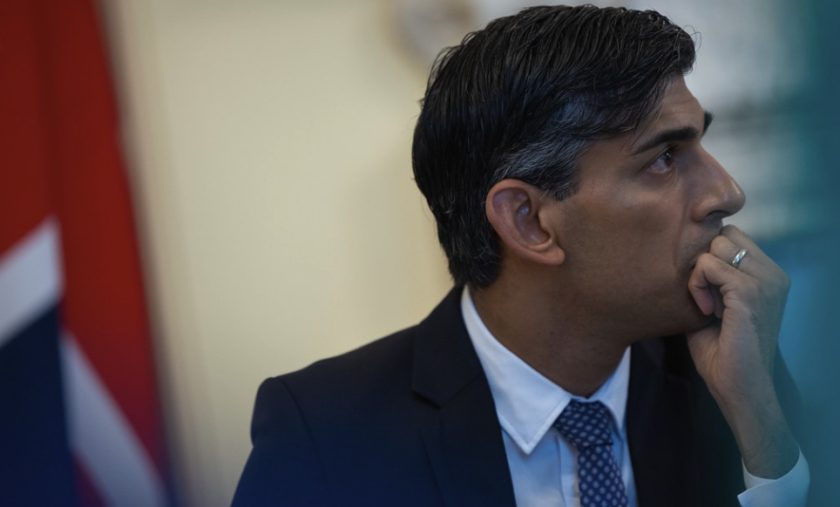Prime Minister set to announce changes to UK’s climate commitments

Prime Minister Rishi Sunak is set to announce changes to the UK’s climate commitments.
The decision comes despite significant backlash from industry stakeholders.
Sunak will address the nation from Downing Street at 4.30pm today unveiling what is described as a “proportionate” strategy for reducing emissions.
The urgency of this announcement was underscored by a hastily convened call with Cabinet ministers on Wednesday morning.
Notable changes are expected, including a shift in the target date to end sales of internal combustion engine cars.
This call was a response to rising speculations regarding Sunak’s ‘net-zero’ plans, which began circulating on Tuesday night.
Interestingly, the original plan was for the Prime Minister to make this climate commitment announcement later in the week.
However, a leak to the BBC regarding these plans seems to have expedited the decision-making process, prompting Downing Street to move the announcement to an earlier date.
Liz Saville Roberts MP, Plaid Cymru’s Westminster leader, criticised Sunak’s expected policy alterations, labelling them a “shameful betrayal of future generations.”
Ms. Roberts pointed out that such decisions could lead to “higher bills, worsened health, and more emissions”, disproportionately affecting the underprivileged.
The proposed changes include delaying the ban on new diesel and petrol car sales from 2030 to 2035, scrapping plans to phase out new gas boiler installations and bandoning energy efficiency standards for landlords.
RAC head of policy Simon Williams said: “It’s disappointing that the 2030 date might be pushed back as doing so would risk slowing down the momentum the motor industry has built up and drivers’ adoption of electric vehicles (EVs).”
“Regardless of what happens, we strongly hope manufacturers will continue to produce EVs in ever increasing numbers as this is ultimately what’s needed to help bring prices down for both new and second-hand cars, as cost remains one the biggest barriers to going electric.”
“At the same time, in the run-up to the ban on the sale of new petrol and diesel cars we’d like to see the Government incentivise the cheaper end of the EV market by reintroducing a form of the plug-in car grant.
“It’s also important to remember that the 2030 deadline as it stands only stops the sale of new petrol and diesel cars which means a lot of people won’t be affected as the majority tend to buy used vehicles.”
The TUC (Trade Union Congress) also voiced their concerns, cautioning that the UK’s manufacturing heartlands are in jeopardy due to the government’s inconsistent approach to climate policies.
With the recent uncertainty surrounding Tata Steel in Port Talbot, the TUC emphasises the necessity of investing in net-zero infrastructure to remain competitive on a global stage.
Their report suggests that as many as 800,000 jobs across various sectors may be at risk without a substantial investment plan. The TUC’s “Invest in our Future” programme recommends significant government investments in sustainable power, industrial upgrades, and public transport.
Comparatively, countries like Germany and the US have been proactive in their green investments. Germany’s €8bn green hydrogen projects have attracted approximately €20bn in private investment. Similarly, the US Inflation Reduction Act has spurred an estimated $900 billion in private sector investment.
Paul Nowak, TUC General Secretary, emphasised the urgent need for a coordinated strategy, saying, “The UK has a clear choice. We can invest and create hundreds of thousands of good jobs and safeguard our industrial heartlands. Or we can drag our heels and deal with the consequences – high bills, job losses and crippled industries.”
Spotted something? Got a story? Email: [email protected]
Latest News
